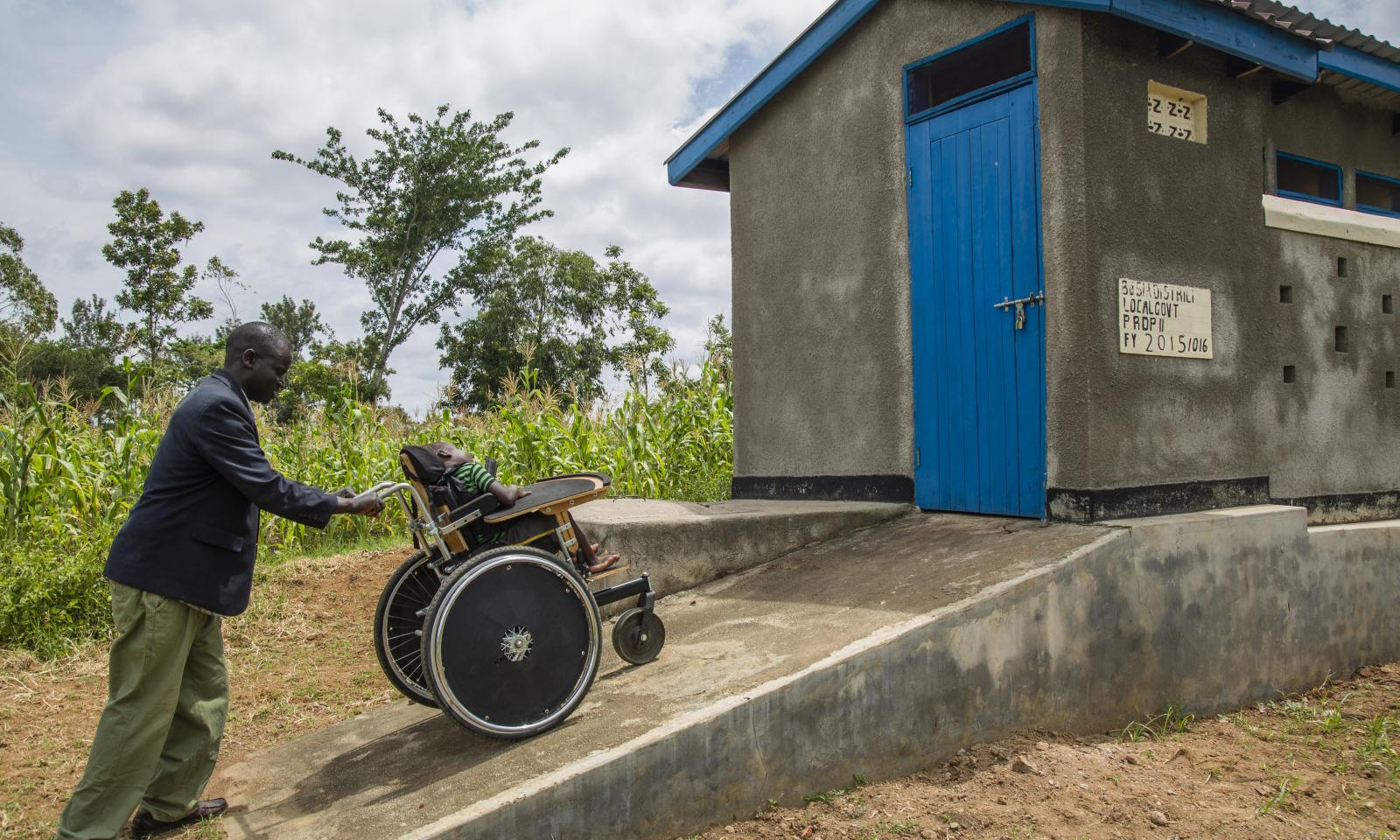Achieving health equity for all in global development
Taastrup (Denmark), Wednesday 10 May 2023. Together with the Disabled People’s Organisations Denmark (DPOD), the International Disability and Development Consortium (IDDC) hosted a one-day international conference on health equity in international development. The conference brought together representatives from IDDC members, DPOD’s partners from Rwanda, Ghana, and Nepal, as well as representatives from the International Disability Alliance, Danish disability organisations, Danish civil society organisations involved in mainstream development, WHO representatives, and the Danish Ministry of Foreign Affairs.
Ensuring good health and well-being is crucial for every individual to lead a fulfilling life. However, the global population with disabilities, which accounts for 16%, still faces significant challenges in accessing healthcare and realizing their health rights. They experience shorter lifespans, poorer health outcomes, and more limitations in their daily lives compared to others. This injustice pervades all aspects of their lives, highlighting the urgent need for addressing health inequities, which ultimately benefits everyone.
During the conference, the World Health Organization (WHO) presented the findings from the Global Report on Health Equity for Persons with Disabilities. Published in December 2022, the report includes valuable new data across various areas, serving as a valuable resource for discussions on how development cooperation and humanitarian efforts can contribute to achieving greater health equity globally.
Three startling figures from the WHO report:
– Nearly one in three women with disabilities will experience physical or sexual violence in their lifetime.
– Persons with intellectual disabilities were eight times more likely to die from the Covid-19.
– Persons with cognitive impairments and persons with physical impairments have up to five times more medical expenditures than those without disabilities.
Source: WHO, 2022. “Global Report on Health Equity for Persons with Disabilities”
Kirstine Primdal Sutton, Chief Advisor and Head of the Partnership Team at the Ministry of Foreign Affairs of Denmark, acknowledged that individuals with disabilities bear a disproportionate burden amidst the increasing crises caused by conflicts, natural disasters, and climate change.
“Good health is a prerequisite to participating fully in society and addressing health inequities for persons with disabilities and therefore imperative to ensure that no one is left behind. […] By working together to address the barriers that exist to promote inclusive healthcare policies and practices, we can ensure that people with disabilities are able to lead more healthy, more fulfilling lives and able to participate better in the societies that they live in.”
Kirstine Primdal Sutton, Chief Advisor and Head of the Partnership Team, Ministry of Foreign Affairs of Denmark
One of the conference’s highlights was the opportunity to hear directly from Organisations of persons with Disabilities (OPDs), featuring testimonies from Devi Acharya, President of the National Federation of the Disabled Nepal; Beth Nasiforo Mukarwega, Chair of the National Union of Disabilities’ Organisations of Rwanda; and Rita Kusi Kyeremaa, Executive Director of the Ghana Federation of Disability Organisations. Their experiences shed light on the importance of inclusive health and provided valuable insights into the challenges faced by their respective communities.
“[Health equity] means accessible facilities and equipment, it means accessible information, services, empowered health workers who have knowledge of disability inclusion and have positive attitudes towards persons with disabilities. It means inclusive systems. It means inclusive health legislation and policies. It means empowered persons with disabilities who are knowledgeable of their rights to health and advocating for sustained health care and services. It means committed governments and partners who support and allocate resources for health, equity, for all. It means strategic programming, monitoring and reporting, and meaningful partnerships that prioritize health equity for persons with disabilities.”
Rita Kusi Kyeremaa, Executive Director, Ghana Federation of Disability Organisations
The conference fostered knowledge exchange and facilitated important discussions between disability and development actors from various parts of the world. Participants were invited to examine the challenges and identify entry points for promoting disability inclusion and achieving health equity within development and humanitarian programs, with particular focus on three key areas: the intersection of humanitarian and development efforts, sexual and reproductive health and rights (SRHR) and gender-based violence, and the impact of climate change.
Three main point from the conference
💡 Collaborate crosswise. Nurture alliances and collaborate with organisations outside the disability “bubble”: we can achieve more health equity if we stand together.
💡 A good investment. Investing in a disability-inclusive health sector makes economic sense: For every USD $1 invested in ensuring disability-inclusive prevention and treatment of e.g. diabetes, cardiovascular diseases, chronic respiratory diseases and cancer, the return on the investment will be USD 10$.
💡 #NothingAboutUsWithoutUs. If we are to ensure that persons with disabilities are not left behind in wars, crises and conflicts, they need to be included at all stages of the emergency efforts. That point was substantiated by a woman from the Ukrainian disability movement ‘Fight for Rights’, who gave an insight into how this was not the case in the health emergency response in Ukraine.
Overall, the conference reinforced the understanding that collaboration among organizations, across national borders and sectors, is crucial in the global fight for the inclusion of persons with disabilities. Furthermore, it emphasized that achieving equity in health is essential for the full participation of individuals with disabilities worldwide.
“To truly influence change, to create preconditions for a change, we need to bring new stakeholders, new partners, new donors to this journey. We need to strengthen our partnership.”
Vladimir Cuk, Executive Director, International Disability Alliance
WHO Global Report on Health Equity for Persons with Disabilities

